
 Flash News
Flash News
Suspected of being murdered, photo emerges of 23-year-old found dead in Shkopet lake
Theth action, resident in tears: I built on my land with my life's expenses, the state should not destroy it
Directors targeted! After Fier and Durrës, Rama arrives in Elbasan
Name/Identification of the 23-year-old found dead near Shkopet Lake
IKM action in Theth, residents come out in protest

It was clear that this would happen sooner or later. Michel Barnier became the shortest-lived prime minister in French history, not even lasting 100 days in office, after Parliament ousted him on December 4 - a feat not seen since 1962.
All of this came in the wake of shock snap elections this summer, in which the far right and a coalition of leftist parties won seats, forcing the politically weakened president, Emmanuel Macron, and his centrist forces to form a minority government. unstable, which could only govern with the consent of the populist Marine Le Pen.
Now, there will be a new government that will probably not survive for very long, as the parameters are exactly the same – a deal with the extreme left or the extreme right until a new election can be constitutionally called in summer of 2025.
Macron is likely to nominate popular Armed Forces minister Sebastien Lecornu from his Renaissance party to try to form a new government that can navigate the volatile national assembly and get enough votes to make any work. But the wisest predictions are that he will fail outright or surpass Barnier's undesirable record for the shortest term as prime minister.
There will be calls for Macron to step down as president before his term ends in 2027, but he is likely to stay on. That means he will continue to steer foreign policy, as French presidents of state usually do, but he will be constrained by the chaos in Paris that will absorb his energy and attention.
He will also be financially strapped, as the government collapsed due to the inability to agree on an austerity budget. The deficit is currently 6.1% of Gross Domestic Product – drawing criticism and potentially financial fines from Brussels and causing fears in financial markets of a new crisis in the eurozone.
And, this comes at the absolute worst time for the EU, as the bloc's other major power, Germany, is a "lame goose" awaiting new federal elections at the end of February, with potentially protracted talks on forming a coalition.
Will there still be sufficient willingness to support Ukraine politically, militarily and most importantly – financially? There will likely be enough funding for Kiev next year, but after that?
Simply put: Europe's two engines stalling amid mounting demands from the incoming US administration for increased European defense spending, as well as signals for new transatlantic trade tariffs, is a scenario that someone in the Kremlin could want to use it to fuel his power struggles in 2025./ REL
Latest news



Found dead in Shkopet Lake, 23-year-old has injuries to his throat
2025-07-09 10:41:39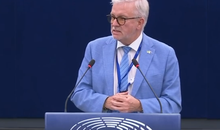


Hoxha: We will have a parliament that will surpass any comedy program!
2025-07-09 10:10:32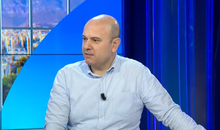

Directors targeted! After Fier and Durrës, Rama arrives in Elbasan
2025-07-09 09:53:57
Name/Identification of the 23-year-old found dead near Shkopet Lake
2025-07-09 09:42:34
IKM action in Theth, residents come out in protest
2025-07-09 09:34:54
Reasons why the EU has not imposed new sanctions against Russia
2025-07-09 09:18:35
DW: Online scams increase human trafficking
2025-07-09 09:01:29

Reported missing by his father, 23-year-old found dead near Shkopet lake
2025-07-09 08:42:13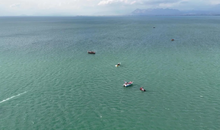

Horoscope, what do the stars have in store for you today?
2025-07-09 08:25:44
Sun and rain, Wednesday with unstable weather
2025-07-09 08:06:58
Posta e mëngjesit/ Me 2 rreshta: Çfarë pati rëndësi dje në Shqipëri
2025-07-09 07:52:02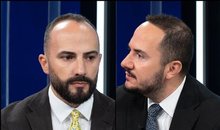

Tabaku: Salianji bore a political cost that no one in Albania has borne
2025-07-08 22:36:15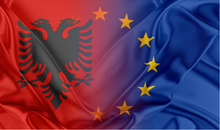


Sekretet për të shijuar verën si një ‘profesionist’
2025-07-08 21:45:06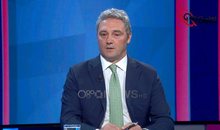


Albania's Waste Crisis: Toxic Smoke and Deep Governance Problems
2025-07-08 21:13:07
Alarming pollution in Fushë-Arrëz, copper factory waste turns the Fan River red
2025-07-08 21:07:14

Poll/ How do you assess the Prime Minister's intervention in local government?
2025-07-08 20:40:01
28 arrested in Italy and Spain for drug trafficking, including an Albanian
2025-07-08 20:24:14
Residents clash with police in Theth: We are on our land
2025-07-08 20:11:41
Death of 27-year-old in Lipjan, Osmani: To be investigated independently!
2025-07-08 20:06:52
Trump promises US will send more weapons to Ukraine
2025-07-08 19:54:25

EU targets health, education, police and cadastre as areas of corruption
2025-07-08 19:23:34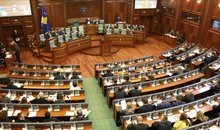




Salianji after his return: I did not oppose for functions, but for vocation
2025-07-08 18:23:15
Will he run in the 2029 elections? Here's how Salianji answers
2025-07-08 18:16:09
Boat captain drowns after diving into water to save two tourists in Shkodra
2025-07-08 18:05:12
Salianji from the DP headquarters: I brought a drug trafficker to justice
2025-07-08 18:03:26
After Fier, Rama "landes" in Durrës, dismissals expected
2025-07-08 17:53:32
Ervin Salianji arrives at the blue headquarters, welcomed by supporters
2025-07-08 17:45:12

EU approves final steps for Bulgaria's Eurozone membership
2025-07-08 17:43:06

Zhupa after Salianj's release: Inspiration for every opposition member
2025-07-08 17:19:39
Actor David Killick passes away
2025-07-08 17:09:23



Threatened with dismissals, Rama arrives at the Fier municipality
2025-07-08 16:39:19
Extreme temperatures temporarily close Acropolis in Greece
2025-07-08 16:30:34

A plot of cannabis is discovered in Mazha, Kruja
2025-07-08 16:13:48
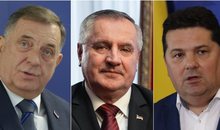
Republika Srpska allocates additional 22 million euros for lobbying in the US
2025-07-08 15:52:04

Spices that protect you from mosquitoes!
2025-07-08 15:30:03

Accident on the Vlora-Qeparo axis, one injured
2025-07-08 15:11:52
Berat, 17 years part of UNESCO's world heritage
2025-07-08 15:03:30


Cost of living increases, inflation rises to 2.4% in June, driven by food
2025-07-08 14:29:54
VIDEO/ Restaurant roof collapses in Italy, one victim and ten injured
2025-07-08 14:18:44
Requested release from cell, Supreme Court leaves Veliaj in prison
2025-07-08 14:07:41
TikTok shutdown/ Austrian media: Rama benefited politically from the app ban
2025-07-08 13:48:25
Acropolis temporarily closed due to heat
2025-07-08 13:31:09


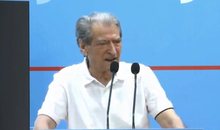
Salianj's release/Berisha: He was politically condemned by Rama and Xhafa!
2025-07-08 13:00:13

Knife attack on Peshkopia Boulevard
2025-07-08 12:44:10


Fier Court decides on the conditional release of Ervin Salianj
2025-07-08 12:15:23
Cost of living increases, inflation rises to 2.4% in June due to food
2025-07-08 12:00:16


Requesting conditional release, Ervin Salianji arrives at the Fier Court
2025-07-08 11:16:36
The first phase of university applications begins today
2025-07-08 11:10:52
Fire in Lura, flames endanger the National Park
2025-07-08 10:53:43
Trump warns of 35% tariffs on Serbia and 30% on Bosnia and Herzegovina
2025-07-08 10:37:32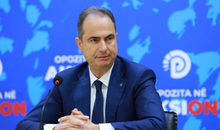
Thethi rooster and the dung cock
2025-07-08 10:24:01

Fire in Dukat endangers Llogara National Park
2025-07-08 10:01:39
International drug search: 36-year-old arrested in Durrës (NAME)
2025-07-08 09:50:48
Thethi, tourists "criticize" modern trend
2025-07-08 09:39:54
Fire on Mount Dukat still active, Llogara National Park at risk
2025-07-08 09:28:12
Veliaj's appeal to be heard today in the High Court
2025-07-08 09:16:02
"Bad sign for democracy"/ Parliament neglects reporting by institutions
2025-07-08 09:04:56
Today's hearing at the Fier Court, Salianji requests conditional release
2025-07-08 08:56:39


Horoscope, what do the stars have in store for you today?
2025-07-08 08:16:19
